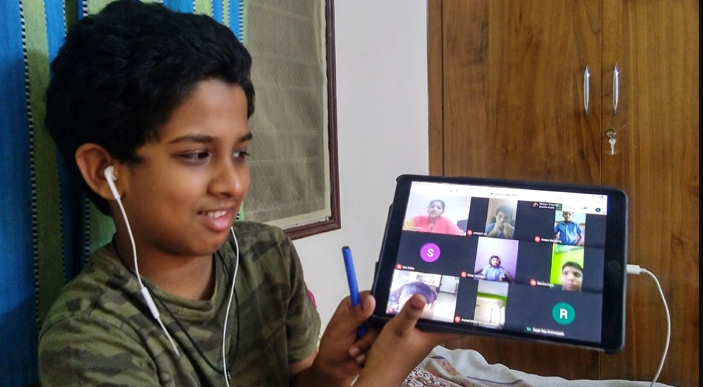New Delhi: A survey among children in four southern states has found startling facts. It has revealed about 94 per cent of the respondents did not have access to smartphones or the internet for online education. The study was conducted by child rights body CRY in May-June. It covered 5,987 children in Karnataka, Tamil Nadu, Andhra Pradesh and Telangana. The information was collected by CRY’s community organisers through telephonic interviews.
The objective of the study was to embark on a fact-finding mission on ‘internet accessibility of children’ in the age group of 11-18 years.
“Schools closed and mobility have been restricted due to the COVID-19 pandemic. CRY wanted to envisage the ground reality of the potential for online education,” the CRY report said.
The study found that nine per cent of the 1,445 respondents in Karnataka stating they had smartphones. In the case of Tamil Nadu only three per cent out of the 1,740 children surveyed had smartphones.
“A further dipstick reveals that the annual income of 95 per cent of the families is less than Rs 1 lakh. Without substantial resources and with bare minimum affordability, having a smartphone is a luxury that more than two-thirds of these families can only hope for,” the study said. While six per cent of the children own smartphones, 29 per cent access their family members’ phones, it said.
Also, 55 per cent of these children get access to smartphones only for three days a week or less, while 77 per cent of them get access for less than two hours a day.
Karthik Narayanan, regional director at CRY South, warned that the study shows that children from the marginalised sections of the society are becoming more vulnerable than ever before.
“Education is the key to ensure a protective environment for children. Going to school not only sharpens a child’s mind but buys crucial time in their lives from being drawn into child marriage or child labour. With conventional education becoming difficult and online education being accessible to only a few, the children from the marginalised sections are becoming more vulnerable than ever before,” said Narayanan.
The nationwide lockdown induced by COVID-19 in March prompted schools and colleges to move to the virtual world for teaching and learning activities. But a weak internet penetration has turned e-education into a distant dream for many children in the rural areas.
According to official statistics, there are over 35 crore students in India.
